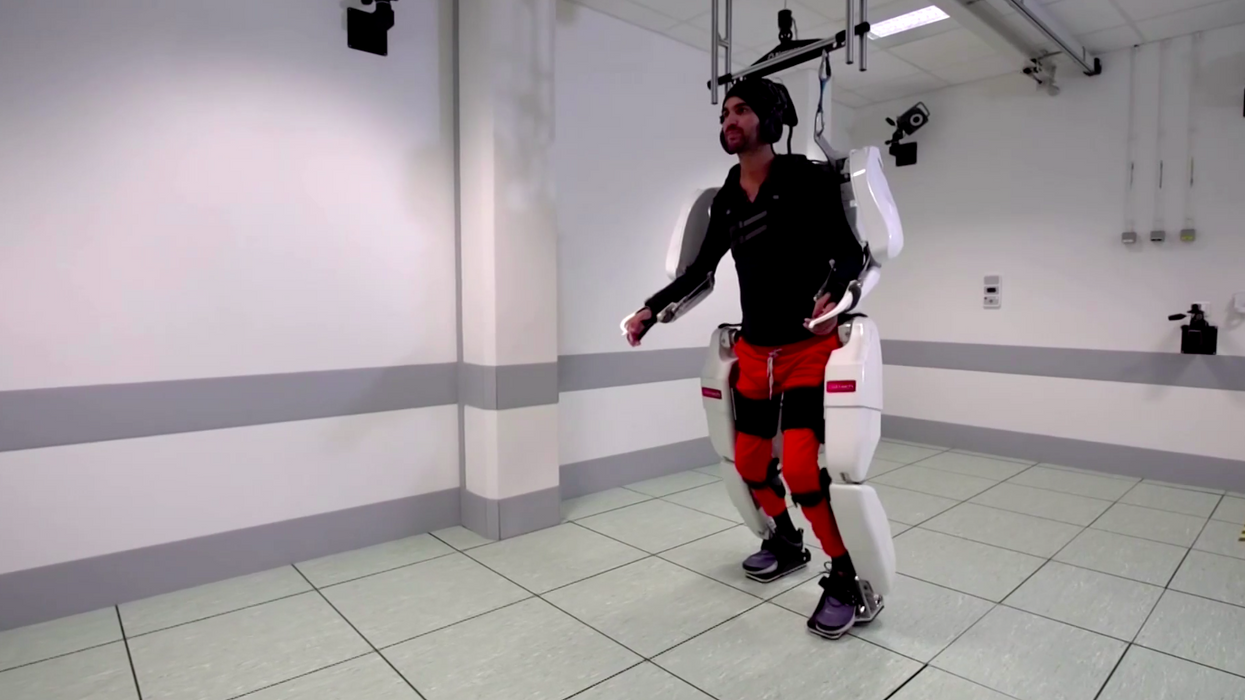
Images source: Reuters video screenshot

He said it felt like he was the 'first man on the moon'
A paralyzed man in France was able to walk across a room on his own using an exoskeleton that responded to signals from his own brain. While there's still a lot of progress that needs to be made, this could be an important step in helping paralyzed people regain their mobility.
The man, identified only as "Thibault," was paralyzed from the shoulders down with the exception of his biceps and left wrist, after falling 40 feet. He agreed to help researchers from the University of Grenoble in France test out an exoskeleton design built for people like him.
Sensors placed on Thibault's head were used to teach a computer to recognize his brain signals. He used them to control a video game avatar with his thoughts. This process alone took more than two years. Sensors like this already existed, but generally needed to be inserted directly into the patient's brain. For this test, however, researchers used sensors that stayed on the surface of the brain. When he's not in the exoskeleton, Thibault can use these same sensors to guide his wheelchair.
In a video, Thibault, 30, can be seen slowly but surely taking step after step to cross the room, with a smile on his face. The BBC reported that he said he felt like he was the "first man on the moon." He said that during the two years since his accident he "forgot what it is to stand" and "forgot I was taller than a lot of people in the room."
But doctors urged caution. The exoskeleton uses a ceiling-mounted chassis, so Thibault won't be able to use it to explore outside the laboratory. A working model that could actually function for someone who needs to use it on a daily basis is still a long way off. And even when it does arrive, it's likely to be exorbitantly expensive.
"Proof of concept is a long way from usable clinical possibility," London School of Hygiene and Tropical Medical professor Tom Shakespeare warned, according to Reuters. Shakespeare added that there was a "danger of hype" with expensive solutions like this that "are never going to be available to most people in the world with spinal cord injury."
Brain-Controlled Exoskeleton Allows Paralyzed Man to Walkwww.youtube.com